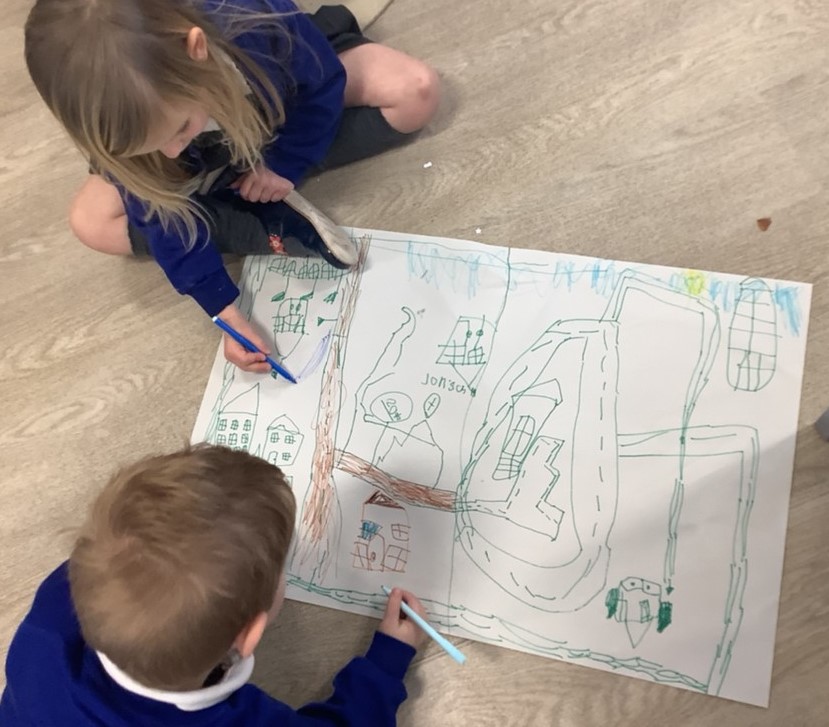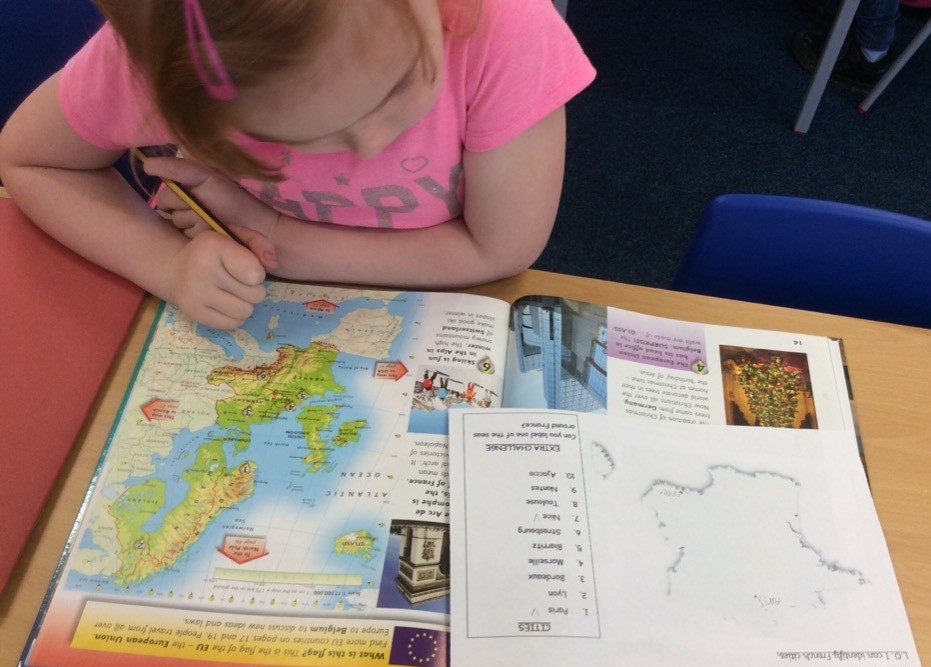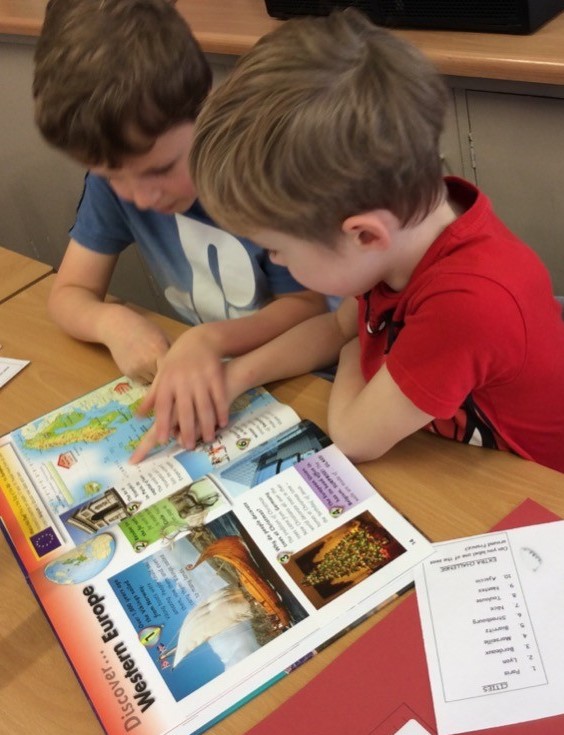 The teaching of Geography at Sleights is underpinned by the ongoing development and acquisition of knowledge and skills. This development and acquisition occurs as a result of our own school’s curriculum sequence and progression, which maps out the core knowledge and skills children need to be highly effective sports people. This is supported by the use of the Grammarsaurus scheme of learning.
The teaching of Geography at Sleights is underpinned by the ongoing development and acquisition of knowledge and skills. This development and acquisition occurs as a result of our own school’s curriculum sequence and progression, which maps out the core knowledge and skills children need to be highly effective sports people. This is supported by the use of the Grammarsaurus scheme of learning.
Our full Geography policy can be found here: Geography Policy
Geography at Sleights involves:
|
Dedicated curriculum time to engage in range of purposeful and practical geographical experiences, including fieldwork. |
|
Sequenced learning experiences, which build on prior knowledge and understanding. |
|
Developing a secure understanding of declarative knowledge relating to the practice of geographers. |
|
Sessions and programmes led focused on building locational knowledge, place knowledge, human and physical processes and geographical skills. |
Statement of Geography Intent:
The children at Sleights will be provided with a curriculum offer for Geography designed to:
- identify crucial learning, which is placed in context and connected to other knowledge.
- gain a secure understanding of geographical skills and concepts, supporting children to ‘think like a geographer’
- build on and develop geography knowledge and skills in a well sequenced and structured progression across their time at Sleights.
- support children’s acquisition and progressive understanding of substantive and disciplinary knowledge.
- enable children to use and develop a range of geographical skills relating to fieldwork.
Statement of Geography Implementation:
 At Sleights, Geography activities are planned, so that they build upon the prior learning of the children. While there are opportunities for children of all abilities to develop their skills, knowledge and understanding in each activity area, there is planned progression built into the scheme of work, so that the children are increasingly challenged as they move up through the school.
At Sleights, Geography activities are planned, so that they build upon the prior learning of the children. While there are opportunities for children of all abilities to develop their skills, knowledge and understanding in each activity area, there is planned progression built into the scheme of work, so that the children are increasingly challenged as they move up through the school.
Geography at Sleights focuses on the acquisition of new knowledge and building on prior learning relating to:
Substantive and disciplinary, knowledge relating to
• locational knowledge: for example name and locate locations, position systems
• place knowledge: for example, the connection of location and physical and/or human geography
processes with personal experience
• environmental, physical and human geography: for example, migration and climate change
• geographical skills and fieldwork: for example using maps, globes and first hand evidence
Disciplinary concepts:
• place
• space
• scale
• interdependence
• physical and human processes
• environmental impact
• sustainable development
• cultural awareness and diversity
Long Term Planning
During each academic year, children complete three enquiry based units. These provide children with progressive opportunities to gain an understanding of location and place knowledge, environmental physical and human geography, geographical skills and fieldwork.
Geography is planned on a two year cycle.
|
Year A |
Autumn |
Spring |
Summer |
||
|
Reception |
Our Village |
Introducing our planet, poles, sea and land |
Wonders of our world |
Using/making a map – real and imaginary |
Life by the coast |
|
Year 1 |
Our school grounds |
Our local park |
|
||
|
Year 2 |
The world and my school (Year 1 unit) |
My local area and Tromso, Norway |
Investigating weather and climate |
||
|
Lower Key Stage Two |
Land use, economic activity and travel (links to Whitby) |
The United Kingdom |
Bee conservation |
||
|
Upper Key Stage Two |
Rivers |
Biomes and eco systems |
The United States |
||
|
Year B |
Autumn |
Spring |
Summer |
||
|
Reception |
Our Village |
Introducing our planet, poles, sea and land |
Wonders of our world |
Using/making a map – real and imaginary |
Life by the coast |
|
Key Stage One |
The world and my school | Investigating weather and climate | My local area and Tromso, Norway | ||
|
Lower Key Stage Two |
Locality unit (Whitby) |
Investigating weather and climate |
My region and Campania, Italy |
||
|
Upper Key Stage Two |
The economic activity of the UK |
Rivers |
My region and the north region of Brazil |
||
Statement of Geography Impact:
 Assessment for learning is fundamental to raising standards and enabling children to reach their potential. Assessment in Geography takes place during and after each taught session, using a range of strategies such as verbal feedback, verbal discussions with children and response time.
Assessment for learning is fundamental to raising standards and enabling children to reach their potential. Assessment in Geography takes place during and after each taught session, using a range of strategies such as verbal feedback, verbal discussions with children and response time.
Teachers assess children’s work in Geography by making assessments as they observe them working during lessons, using the same assessment framework throughout the school. Each lesson includes guidance to support teachers in assessing pupils against the learning objectives. Furthermore, each unit has a unit quiz and knowledge catcher, which can be used at the start or end of the unit to assess children’s understanding. Opportunities for children to present their findings using their geographical skills will also form part of the assessment process in each unit.
